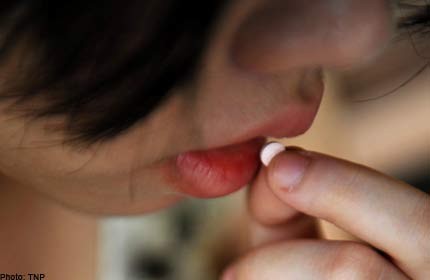Soaring numbers of young drug abusers

SINGAPORE - The drug problem remains significant, especially among the young, the Government said on Monday, in explaining the reasons for giving anti-narcotics laws more muscle.
Between 2007 and last year, the number of drug abusers arrested annually jumped by about 50 per cent, Deputy Prime Minister Teo Chee Hean told Parliament.
Of particular concern is the increase in young abusers. The number of under-21 arrested in the five years has tripled.
But recent trends abroad also mean it is necessary to tweak Singapore's anti-drug laws, said Mr Teo, who is also Home Affairs Minister.
For instance, there are quite a number of clandestine laboratories operating in East and South- east Asia. It is against such a backdrop - and with Singapore being in close proximity to major source countries - that the Government is making five key amendments to the Misuse of Drugs Act (MDA), said Mr Teo.
First, new psychoactive substances can be temporarily listed for up to 12 months in the Act, with the possibility of a 12-month extension.
Currently, before a substance is listed as a controlled drug and made illegal, study and industry consultation is needed.
"This takes time and in some cases, the drug may be in circulation, causing harm long before these processes are completed," Mr Teo said.
Second, hair analysis will be used to complement urine testing in screening for abusers.
This new method can detect drugs months after consumption, although some time has to elapse after a drug is consumed before the substance and its metabolites become more clearly detectable.
Still, it will address a weakness in Singapore's dependence on urine tests - urine is less likely to contain sufficient drug traces after a few days from the time of abuse.
Hair analysis will be used only for making supervision orders for now. Under this, the Central Narcotics Bureau (CNB) director will have powers to require anyone whose hair specimens have tested positive for drugs to be subject to the supervision of an anti-narcotics officer for up to two years.
Those who fail to provide hair specimens without a reasonable excuse will face up to two years' in jail and/or a fine of $5,000.
The third amendment involves strengthening the enforcement regime.
It will now be illegal to arrange or plan a gathering of two or more people with the knowledge that a controlled drug is, or is to be, consumed or trafficked.
The punishment will be jail of between three and 20 years, and caning at the court's discretion.
There will be enhanced punishments if young persons, or those suffering from a mental impairment, are at the gathering.
Repeat drug traffickers and those who target the young or vulnerable will also face stiffer punishments.
Fourth, a facility to improve the way young abusers are dealt with will be set up.
This community rehabilitation centre involves a residential component with counselling programmes that allow youths to continue with education or work.
The final amendment involves changes to the mandatory death penalty punishment regime and means that traffickers who satisfy certain tightly-defined conditions may be handed life imprisonment and caning instead.
Concluding, Mr Teo said the measures will send a strong deterrent message and enhance the operational effectiveness of enforcement agencies.
"We have long taken a zero-tolerance approach against the drug menace. The amendments proposed...allow us to continue doing all we can to keep our streets safe and to protect our children from the scourge of drugs."

Get a copy of The Straits Times or go to straitstimes.com for more stories.